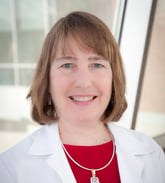 How Do I Know if I Am Infertile?"
class="bg-img"
fetchpriority="high"
loading="eager"
decoding="async">
How Do I Know if I Am Infertile?"
class="bg-img"
fetchpriority="high"
loading="eager"
decoding="async">
Written By: Carol Wheeler, MD, Women & Infants Hospital's Fertility Center on May 2, 2022
These are common questions people of childbearing age ask. We spend years preventing pregnancy while we are in school or building a career – and when it’s time to start a family, fertility concerns come into play.
For biological males, the following can result in lower sperm counts and infertility:
Those over the age of 40 may have a significant decrease in fertility, so individuals in this age group should seek an evaluation as soon as possible.
Individuals on long-term medication or with diseases such as diabetes or high blood pressure should speak with their healthcare provider to make sure they are as healthy as possible and that the medications they are taking are safe when trying to conceive.
If you have concerns about your future fertility, some basic testing can be done by your healthcare provider. This may include a semen analysis, blood tests, and ultrasound.
Those who choose to freeze their eggs may never need them. Nevertheless, it offers peace of mind to those in their mid-30s who do not have a partner or who are not ready to begin their family.
If that is something you are contemplating doing, you should see a reproductive endocrinologist (fertility specialist) for a consultation. You will have an opportunity to learn about your fertility potential whether you choose to pursue any treatment.

Carol Wheeler, M.D.
Women & Infants Fertility Center
Professor, Department of Obstetrics and Gynecology (Clinician-Educator)
Disclaimer: The content in this blog is for informational and educational purposes only and should not serve as medical advice, consultation, or diagnosis. If you have a medical concern, please consult your healthcare provider or seek immediate medical treatment.
Send Us A Message
90 Plain Street,
Providence, RI 02903
Copyright © 2026 Care New England Health System